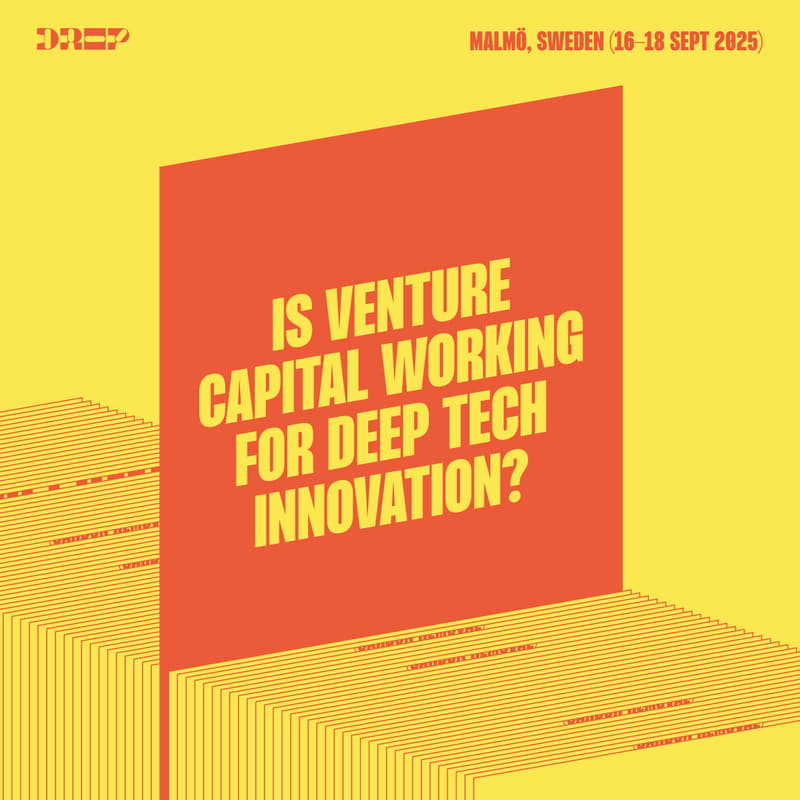

Is venture capital working for deep tech innovation?
Ripple Hosts
Nicolas Krink
SPRIND
Petar
BioInnovation Institute
TL;DR
This Ripple explores the critical funding gap facing European deep-tech startups—especially in fields like synthetic biology and quantum technologies—that often don't align with traditional VC models. It calls for a bold, cross-sector discussion on alternative funding solutions, including greater roles for public agencies, philanthropic capital, and hybrid models, to ensure Europe can attract, support, and retain breakthrough innovation.
Topic overview
Why is the topic relevant?
European deep-tech startups, particularly in emerging sectors such as Synthetic Biology for planetary health and quantum technologies, rarely align with traditional venture capital models. This mismatch often leaves groundbreaking European innovations struggling to secure adequate funding, forcing them to perform a Delaware flip to attract US-based investments. However, have we ever witnessed a Stockholm, Copenhagen, Berlin, or Amsterdam flip from a US-based company? What steps must Europe take to attract and retain the world's leading breakthrough innovators within our ecosystems?
Breakthrough deep-tech investments require patient capital, substantial resources, and extended timeframes, factors often misaligned with traditional VC risk profiles and return expectations. Is it time for governmental innovation agencies such as SPRIND or ARIA to take a more active role? Should we seek increased funding from the European Innovation Council (EIC), strengthen investments from the European Investment Bank (EIB), or leverage foundations like the BioInnovation Institute (BII)? Could solutions instead come from new initiatives such as DESI funding or from Focused Research Organizations backed by philanthropic capital?
It is critical for stakeholders from various sectors to come together for a provocative yet constructive dialogue, exploring alternative and hybrid funding models capable of effectively addressing the funding gaps that traditional venture capital currently struggles to fill. The drop should be the place for it!
What’s up for discussion?
The main question is whether venture capital is the right fit for deep-tech startups that fall outside the classic return models we know from software and pharma.
What’s the solution to this funding gap? Do foundations, governments, and philanthropic organizations need to step in to close it?
And what alternative models might better serve these groundbreaking innovations?
Dream outcome
While it's a big ask to find definitive answers to these pressing questions, the ideal outcome is to see movement and reflection from all stakeholders. Most likely, there is no universal truth or single tool to solve the funding gap for non-conventional deep-tech startups, but meaningful dialogue and open discussion can certainly be the first steps toward a solution.
Who should attend?
VCs across all stages - especially seed, pre-seed, and Series A investors in sectors with longer development cycles including biotech, climate tech, advanced materials, energy, and deep tech.
Alternative and non-traditional funders - government agencies, corporate VCs, family offices, and impact investors seeking to understand collaboration opportunities with traditional VC.
Founders and entrepreneurs who've navigated multiple funding sources or are considering hybrid funding strategies for scaling breakthrough innovations.
The discussion will benefit anyone interested in expanding their understanding of European innovation funding and creating new partnership opportunities.